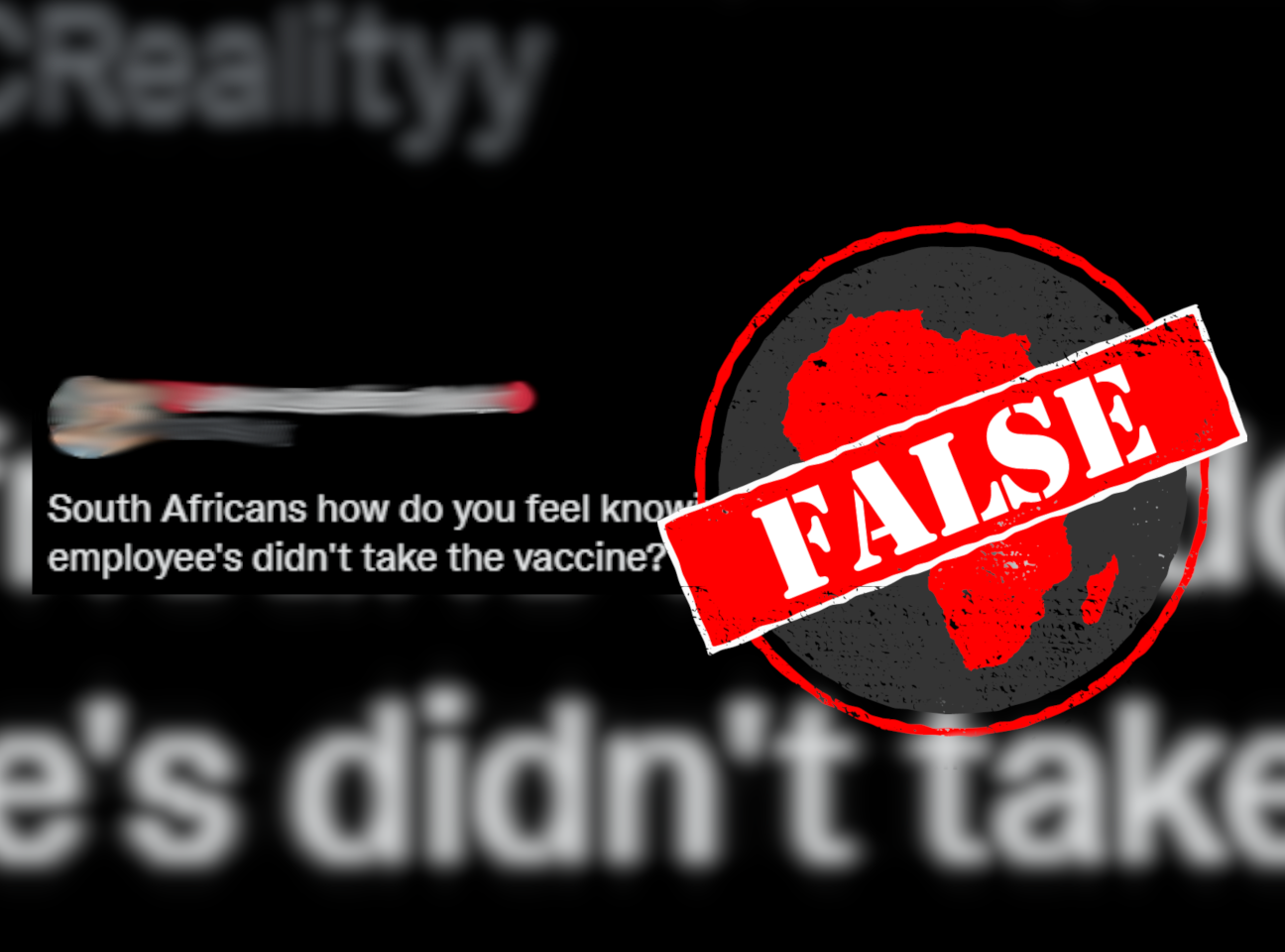IN SHORT: A leading question widely retweeted in South Africa suggests employees of pharmaceutical company Pfizer haven’t taken Pfizer’s Covid-19 vaccine. But there’s plenty of evidence that this simply isn’t true.
“South Africans how do you feel knowing Pfizer employee's didn't take the vaccine?” asks a tweet circulating on social media in October 2022, from an account called Black Conspiracy Reality.
This is the latest we’ve seen in a long line of sceptical claims directed at Pfizer, the pharmaceutical company responsible for making one of the most-widely used Covid-19 vaccines.
Similar claims emerged in the course of the Covid-19 pandemic, including that the Pfizer chief executive didn’t take his company’s vaccine, and that employees from certain organisations responding to the pandemic did not stick to the same vaccine mandates other companies implemented.
These claims seem to imply that the company had some kind of secret knowledge about their own vaccine. But what’s the real story? Did Pfizer employees really not take the Covid-19 vaccine? We checked.

Pfizer has vaccine mandate in place and employees have been vaccinated
In December 2020 the United Kingdom and United States were among the first to approve the Pfizer vaccine for emergency use after human trials. Later, in August 2021, the US’s medical regulatory agency fully approved the Pfizer shot as the first available Covid-19 vaccine.
In September of the same year South Africa’s own regulatory agency approved the vaccine for people aged 12 and up.
As Covid-19 vaccines became available around the world, governments debated how to regulate them. Part of this discussion was around vaccine mandates, rules that make being vaccinated a condition for some activities and settings, like attending work or school.
Mandates around the world have often required employees to be vaccinated in order to perform their work duties. In many countries, including in South Africa, this has often meant that an employee must either be vaccinated or agree to be regularly tested for the virus.
The World Health Organization has clarified that “despite its name, ‘mandatory vaccination’ is rarely compulsory, i.e., people are not forced to be vaccinated”.
Pfizer introduced a vaccine mandate for US employees as far back as August 2021. And confirmation of employees – including chief exec Albert Bourla – being vaccinated has been reported by news outlets and the company itself.
South African Pfizer employees also vaccinated
Africa Check spoke with the regulatory affairs manager at Pfizer South Africa, Jo-Anne Poley, about the local situation. Poley said that the claim about Pfizer employees not taking the vaccine was incorrect.
She also confirmed that the company had introduced a mandate for employees to either be vaccinated or have regular Covid-19 testing.
Independent research has confirmed that like the other available vaccines, the Pfizer-BioNTech vaccine is safe for most people, and is effective in lowering the risk of severe illness and death from Covid-19.
Republish our content for free
For publishers: what to do if your post is rated false
A fact-checker has rated your Facebook or Instagram post as “false”, “altered”, “partly false” or “missing context”. This could have serious consequences. What do you do?
Click on our guide for the steps you should follow.
Publishers guideAfrica Check teams up with Facebook
Africa Check is a partner in Meta's third-party fact-checking programme to help stop the spread of false information on social media.
The content we rate as “false” will be downgraded on Facebook and Instagram. This means fewer people will see it.
You can also help identify false information on Facebook. This guide explains how.





Add new comment